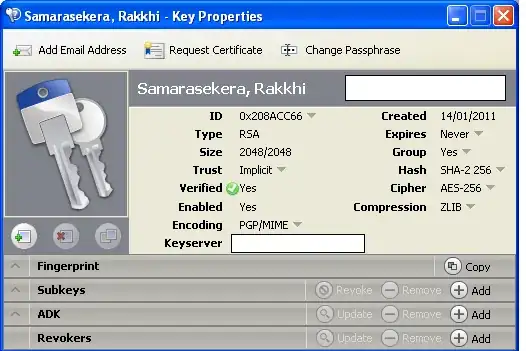Is there a way that I can use a RSA keypair with PGP? What I mean is that I have 2048 length keypair and i want to use that to encrypt and decrypt data. But all I have found is that the PGP uses some keyrings and some pgp keys. And I haven't found anywhere why they are different? Why I am asking is that I need to store keys in HSM but i cant do that with PGP keys. Looked around and didn't find anything about that on google also.
Can anyone explain it to me or share some link.
